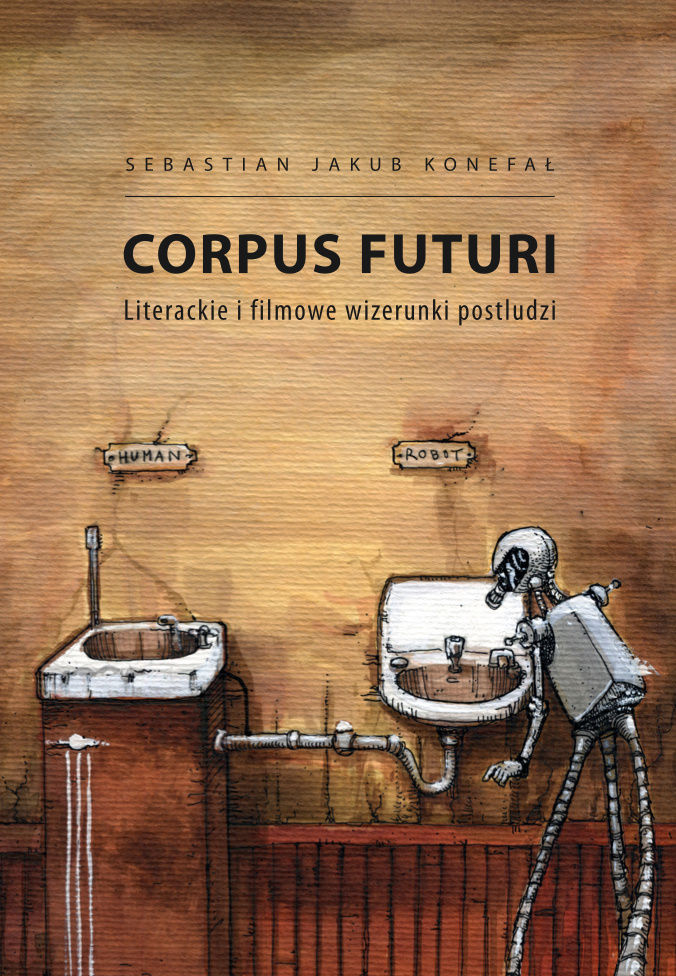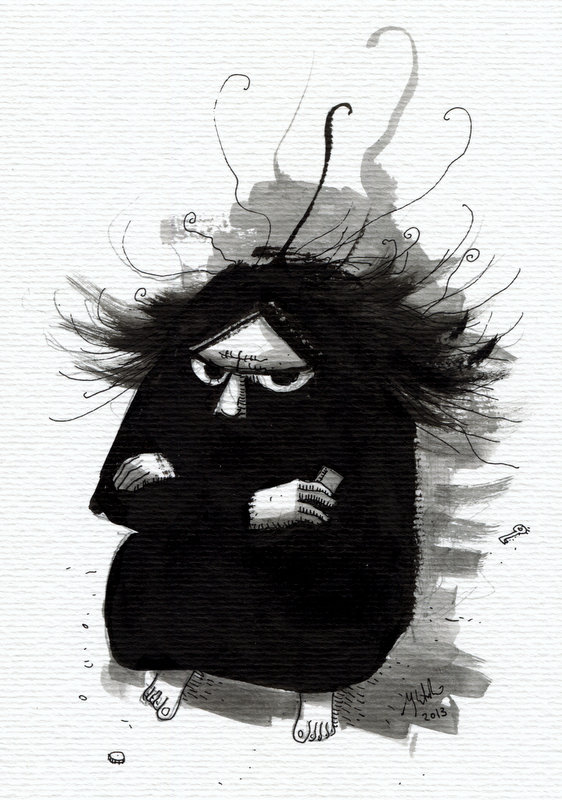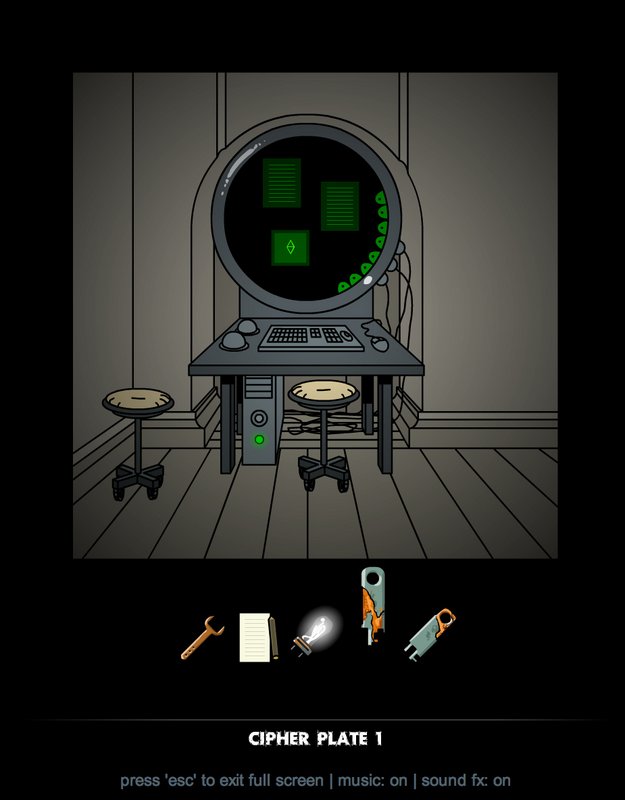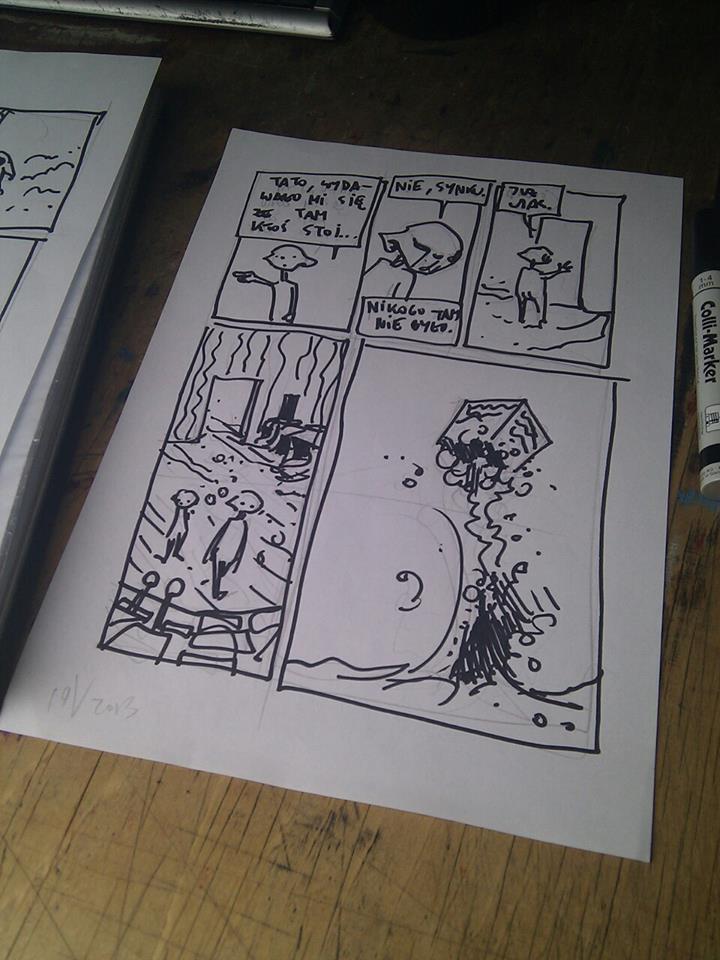meanwhile in submachine world…
June 16, 2013
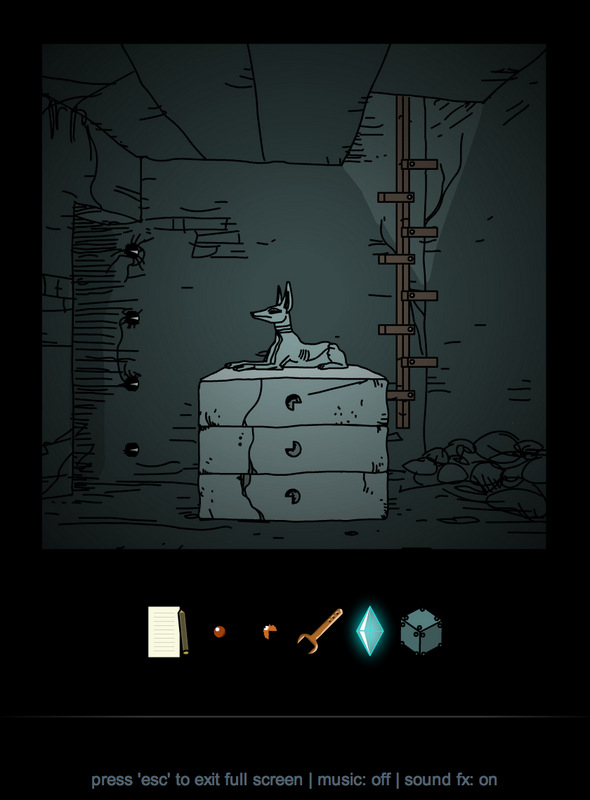
Just look at it. Doesn’t this screen look nice? It does, right? The ongoing development of Submachine 5: the Root HD continues. And there are things we need to discuss. As you can deduct from the picture above – I’m pretty far in. Actually I’m not far – I’ve already finished. Submachine 5 is already HD, transfered to the brand new sparkling engine (sub-float 3.2) and ready to be shipped away into the online wilderness.
But then again.
Is it REALLY finished? I don’t know. That’s where you come in. (You as in: fans of the series, people that care about submachine and in return – I care about your opinion).
There are two things I have to ask you.
1. It’s HD. I was wondering if going a step further is worth the work (and the wait). To the point: I’m thinking about pipming those graphics a bit. Not to redraw them, but to add another layers of pencil-love from me. What do you think? Do you think I should keep it simplistic as it is, or you’d like to see better crafted parts of the root?
2. This question is tied to the previous one. Since I had to rebuild the whole thing from scratch on a new engine – I’m kind of ears deep in it. I have it in my bloodstream at the moment if you will. Thus – I can ADD stuff to the game. To create not only HD, but also EXTENDED version of the game. How does it sound – all you submachine purists – would you like to see more rooms, more puzzles, more things to do in this game? Would that help selling you the game? How does it sound?
Please – let me know on Facebook or Twitter. I really appreciate all answers, and I want to keep more in touch with you concerning “what is the right move” here.
Tell me what to do.
Tetrastych, recenzja na Kolorowych Zeszytach
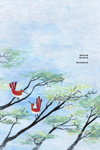 Tetrastych, albo bardziej po polsku – czterowiersz jest to typ strofy poetyckiej składający się z czterech wersów. Najczęściej izosylabicznych, połączonych ze sobą rymami. W poezji znany jest już od czasów antycznych, w literaturze polskiej pozostaje wciąż najpopularniejszym typem strofy, stosowanym również w tekstach epicko-lirycznych, na przykład w balladach. Tetrastych to również tytuł nowego albumu Mateusza Skutnika.
Tetrastych, albo bardziej po polsku – czterowiersz jest to typ strofy poetyckiej składający się z czterech wersów. Najczęściej izosylabicznych, połączonych ze sobą rymami. W poezji znany jest już od czasów antycznych, w literaturze polskiej pozostaje wciąż najpopularniejszym typem strofy, stosowanym również w tekstach epicko-lirycznych, na przykład w balladach. Tetrastych to również tytuł nowego albumu Mateusza Skutnika.
Nie ulega najmniejszym wątpliwościom, że mieszkający w Gdańsku artysta jest jednym z najbardziej interesujących i najwybitniejszych współczesnych twórców komiksowych. Swoje pierwsze szlify zdobywał na łamach niskonakładowych zinów. W „Vormkfasie” czy „Ziniolu” debiutował Blaki, pojawiły się pierwsze historie z cyklu „Morfołaki”, które później wydane w albumach ugruntowały pozycję, jaką Skutnik wywalczył sobie dzięki „Rewolucjom”. Ta seria utrzymanych w oryginalnej oprawie graficznej opowieści ze swoją wyrafinowaną kompozycją i steampunkowym klimatem zachwyciła czytelników i krytyków. Jednak „Tetrastych” nie ma nic wspólnego z żadną z tych pozycji.
Nowy album Skutnika to zbiór czterokadrowych pasków, które powstały w ramach konkursu na forum Gildii, strony skupiającej największą komiksową społeczność w polskim internecie. Rzecz cała polegała na tym, że w tydzień trzeba przemyśleć i przygotować krótką historyjkę na zadany temat. Potem twórcy wraz z czytelnikami wybierali najlepszą pracę w głosowaniu. Zwycięzca, który otrzymał najwięcej głosów, zadawał nowy temat. I tak z tygodnia na tydzień, z miesiąca na miesiąc – gdy piszę te słowa trwa właśnie 263. edycja konkursu. W założeniu ta zabawa miało stanowić platformę wymiany doświadczeń między komiksiarzami, miejsce rzeczowej krytyki, stać się okazją, aby szlifować swój komiksowy warsztat i uczyć od bardziej doświadczonych kolegów „z branży”. Oprócz tego konkurs wydał dość nieoczekiwane owoce, które przybrały kształt albumów komiksowych – wystarczy wspomnieć o „Ruchomych paskach” Marka Lachowicza czy albumie „Blaki. Paski” Skutnika właśnie. Kolejnym jest „Tetrastych”. Pomieszczone w nim zostały 52 paski na 52 różne tematy, które powstały podczas 52 tygodni rysowania.
Trzeba żelaznej konsekwencji, aby tydzień po tygodniu wysilać zarówno głowę, jak i ołówek, aby na czas dostarczyć nowy komiks. W „Tetrastychu” pojawia się okazja zobaczenie artysty mierzącego się z kieratem ściśle ustalonego harmonogramu. Efekt tych skutnikowych zmagań jest różny. Niekiedy wychodzi z nich zwycięsko, a czasem efekt jego pracy rozczarowuje. Jak to się mówi w sportowym żargonie – decyduje forma dnia.
Jakościowy rozstrzał „Tetrastychu” jest niesłychany – trafiają się w nim szorty, które trzeba postawić obok najlepszych osiągnięć Skutnika. Przewrotnie przynosząc na myśl wielkich klasyków europejskiego komiksu Bilala i Moebiusa, ale do szpiku w swej polskości wibrująca Raczkowskim „Entropia”, wywołujące napad niekontrolowanego śmiechu „Zimno”, na wskroś niepoprawny „Islam”, absolutnie fantastyczna „Książka” czy równie znakomita „Polska” – to tylko kilka przykładów z brzegu, pokazujących komiksowy kunszt swojego autora. Niestety, na każdy czterokadr zapadający w pamięć przypada przynajmniej jeden nieudany. Taki, którego puenta była niecelna, żart nieśmieszny, pomysł nieudany. W tych przypadkach często bywa, że Skutnik za bardzo kombinuje. Siląc się na oryginalny koncept, ostateczne ponosi klęskę, gdzieś gubiąc efekt, jaki chciał uzyskać.
Podobnie, rzecz ma się z estetyką i stylistyką. Cartoon i zaledwie cztery kadry do zagospodarowania to nie jest środowisko sprzyjające Skutnikowi. To typ twórcy, który potrzebuje przestrzeni, aby rozwinąć swoje skrzydła, który potrafi umiejętnie budować nastrój i dramaturgie, a w pasku nie ma niestety na to miejsca. Wydaje mi się, że bardzo trudno jest mu zaprezentować mu wszystkie te walory w formie, na jaką zdecydował się w „Tetrastychu”, ale niewątpliwie te prace, którą skrzą się skutnikowym liryzmem należą do najlepszych w całym zbiorze. Trafiają się rzadko, ale jak już udaje się zamknąć na tych czterech kadrach to czytelnik zastyga w zachwycie.
Pod względem wizualnym Skutnik odwołuje się właściwie do wszystkich stylów graficznych, z jakich korzystał podczas swojej kariery. Od skrajnie minimalistycznej kreski znanej z „Blakiego”, przez estetykę zakorzenione w tradycji awangardowej („Morfołaki”) czy turpistyczną („Wyznania właściciela kantoru”), aż do malarskich pasteli (ostatnie „Rewolucje”). Pomimo tej różnorodności wszystkie prace zgromadzone w „Tetrastychu” łączy to, że odmalowane są bardzo swobodnie, niekiedy na granicy niedokładności. Autor nie ma czasy cyzelować szczegółów, bo trzeba zdążyć z terminem…
„Tetrastychem” Mateusz Skutnik chce umilić swoim czytelnik czas oczekiwania na kolejne „Rewolucje”. Nie mogłem pozbyć się wrażenia, że to tylko przystawka, mając rozbudzić apetyt na coś znacznie większego.
Kuba Oleksak
Tetrastych, recenzja na independent
 Komiksy znalezione na Tetrast(r)ychu.
Komiksy znalezione na Tetrast(r)ychu.
Najnowszy album Mateusza Skutnika – „Tetrastych” – zawieszony jest gdzieś pomiędzy jego starszymi, fanzinowymi pracami, a albumami wydawanymi w ramach cyklu „Rewolucje.
W zeszłym roku dostaliśmy od autora zbiorek archiwalnych prac, z których powstały „Komiksy znalezione na strychu”. W tym autor znów przegrzebał swoje archiwum i wyjął z niego plansze, które nie doczekały się do tej pory jeszcze wydania albumowego. Powstał z nich „Tetrastych”. Zbiorek 52 jednoplanszówek narysowanych w 52 tygodnie.
Sam autor na swojej stronie Pastel Portal pisze, że: „to efekt cotygodniowego konkursu na pasek komiksowy odbywającego się na forum Gildii Komiksu, w którym uczestniczyłem przez równy rok (październik 2011 – październik 2012). Stąd 52 plansze, stąd format, stąd rygor i stąd efekt.”
Ów „efekt” znajduje się w minimalistycznej okładce wprowadzającej w klimat albumu. Minimalistyczne są też i opowieści. Każda z plansz to cztery kadry. Taki obrazkowy – jak mówi autor – „czterowiersz”. Zbiorek króciaków. Żartów, spostrzeżeń, migawek z rzeczywistości przeniesionych na papier i namalowanych akwarelami. Niegdyś wpuszczonych do sieci, dziś włożonych w twardą oprawę z dwoma ptakami siedzącymi na gałęziach drzewa. Skutnik tworząc swoje jednoplanszówki jedną nogą został gdzieś w stylistyce znanej z undergroundowych wydawnictw. Wyjął z nich żart i drapieżność kreski. Drugą nogą został w świecie „Rewolucji”, z którymi kojarzy się pastelowa kolorystyka. Graficznie patent ten – nazwałem go sobie „pastelowym undergroundem” – sprawdza się znakomicie.
Niestety gorzej jest z żartami. Pod tym względem „Tetrastych” nie jest równym albumem. To jednak norma w przypadku paskowych produkcji. Wiadomo, każdy autor ma lepsze i gorsze dni (w tym przypadku tygodnie). Lepiej czy gorzej czuje też dany temat. Lepiej czy gorzej dobierze do niego historyjkę. A rozrzut tematyczny jest ogromny. Od żelaznego elektoratu w moherowych beretach, poprzez kostki rosołowe (!), złoto aż po pożegnanie. Są wśród tych dopowiadanych i dorysowywanych historyjek perełki. Zaliczyć muszę do nich „Grę cieni” – refleksyjną opowieść o znikających po wybuchu atomowym dzieciakach. Fajna jest też niema „Kartka” (o rzucanym gdzieś z wysoka papierowym samolociku), „Fantazja” (o wyobrażaniu tego, cóż skrywa się w morskich głębinach) czy „Luneta” (o spoglądaniu w przeszłość). To w nich czuć rewolucyjnego ducha. Duch znany z komiksów o „Blakim” natomiast unosi się nad Trzema kwadratami”, w których szachowy konik marzy o… wiosennej łące o wschodzie słońca.
Są w zbiorku też niezłe żarty. Polacy u Skutnika to wieczni opoje z dziada-Lecha-pradziada. Pociągi – jak w rzeczywistości – ciągle się spóźniają. Dziadkowie mówią w końcu „dość” obwieszczając małżonkom: „Nie pójdę do Lidla i koniec”. Miś, z którym można przypozować do fotki w górach okazuje się wcale nie być tandetnym białym niedźwiedziem przechadzającym się po Krupówkach. Z kolei jeden z mutantów-superbohaterów mrożących wszystko dookoła powstał w efekcie kąpieli w kociołku z chłodnikiem… Ale są też mielizny – zajrzyjcie na „Farbę”, „Orzeszki” czy „Dzieci” i oceńcie je sami. Dla mnie mogłoby ich równie dobrze w albumie nie być.
Na razie odstawiam „Tetrastych” na półkę traktując ten zbiorek jako coś, co ma skrócić oczekiwanie na kolejne „Rewolucje”, zapowiadane na jesień. Ale pewnie wrócę jeszcze do niego. Tak, jak wracam choćby do „Morfołaków”. Wszak obcowanie z pracami Skutnika to czysta przyjemność. Może nie zawsze w warstwie tekstowej, ale w graficznej już jak najbardziej.
Autor: Mamoń
Daymare evolution…
June 3, 2013
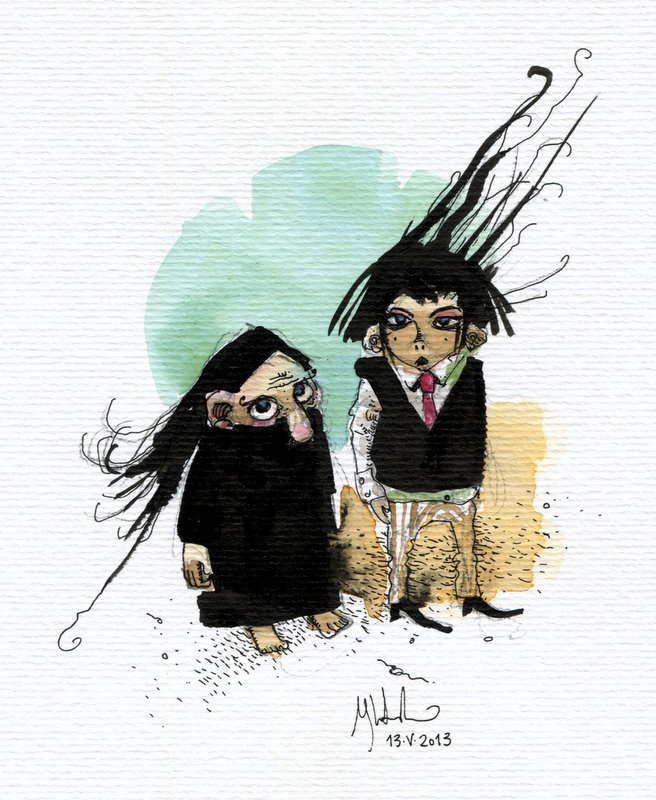
attention:
don’t worry, daymaretown 4 still looks exactly like previous ones.
This is just a sketch of what might come in the future as a brand new series,
evolved from daymare and submachine for example (people + machines).
We cool? :D
Submachine 6: the Edge HD
May 16, 2013
Submachine 6: the Edge is now available in the HD format. Click here to purchase the game.
« Previous Page — Next Page »








